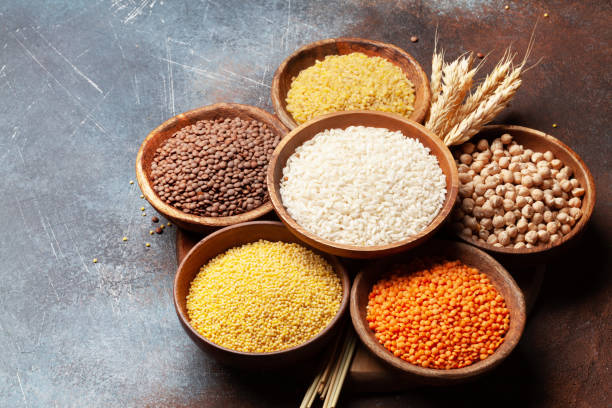In recent years, there has been a resurgence of interest in traditional grains like millets, and for good reason. Millets, once considered as ‘poor man’s food’ or relegated to birdseed, are now being recognized as nutritional powerhouses that offer a plethora of health benefits. Let’s delve into why millets are good for health and why you should consider incorporating them into your diet.
Millets: The Tiny Powerhouses of Nutrition
Millets have been a staple food for centuries, but lately they’ve been getting a resurgence in popularity. And for good reason! These tiny grains are packed with a surprising amount of nutrients, making them a healthy addition to any diet.
What are Millets?
Millets are a group of small-seeded cereal grains that are known for their hardiness and drought resistance. They come in many varieties, each with its own unique flavor and texture. Some of the most common millets include pearl millet, finger millet, foxtail millet, proso millet, and kodo millet.
Millet Powerhouse of Nutrients
Here’s why millets deserve a spot on your plate:
1. Nutrient-Rich:
Millets are packed with essential nutrients including carbohydrates, proteins, dietary fiber, vitamins, and minerals. They are particularly rich in magnesium, phosphorus, iron, and calcium, making them a valuable addition to any diet.
2. Gluten-Free:
For those with gluten sensitivities or celiac disease, millets are a fantastic alternative to wheat and other gluten-containing grains. They provide a safe and nutritious option for individuals who need to avoid gluten in their diet.
3. Low Glycemic Index:
Millets have a low glycemic index, which means they release glucose into the bloodstream at a slower rate compared to refined grains. This helps in maintaining stable blood sugar levels and can be beneficial for individuals managing diabetes or those aiming to control their weight.
4. Rich in Antioxidants:
Certain varieties of millets, such as finger millet (ragi) and pearl millet (bajra), are rich in antioxidants like polyphenols and flavonoids. These compounds help in neutralizing harmful free radicals in the body, thereby reducing the risk of chronic diseases like cancer, cardiovascular ailments, and premature aging.
5. Heart Health:
The high fiber content in millets aids in lowering cholesterol levels and promoting heart health. Including millets in your diet can contribute to reducing the risk of heart disease and stroke.
6. Digestive Health:
Millets are an excellent source of dietary fiber, which is crucial for maintaining a healthy digestive system. Fiber helps in preventing constipation, promoting regular bowel movements, and supporting overall gut health.
7. Weight Management:
Due to their high fiber and protein content, millets can help in promoting satiety and reducing appetite, making them a valuable addition to weight loss or weight management diets.
8. Versatility in Culinary Applications:
Millets are incredibly versatile and can be incorporated into a wide range of dishes, including porridges, bread, pancakes, salads, soups, and even desserts. Experimenting with millet-based recipes adds variety to your meals while reaping the nutritional benefits they offer.
9. Environmentally Sustainable:
Millets are hardy crops that require minimal water and are well-adapted to diverse agro-climatic conditions. Cultivating millets is environmentally sustainable and can contribute to conserving water resources and preserving biodiversity.
Millet Magic in the Kitchen
Millets are incredibly versatile and can be enjoyed in many ways. Here are some ideas to get you started:
- Cooked as a porridge for a healthy breakfast.
- Used in place of rice or couscous in savory dishes.
- Ground into flour for baking breads, pancakes, and roti.
- Added to soups and stews for extra texture and nutrients.
- Puffed for a light and crunchy snack.
The Takeaway
Millets are a delicious and nutritious powerhouse that can easily be incorporated into your diet. With their gluten-free status, impressive nutrient profile, and versatility in the kitchen, millets are a tiny grain with a big impact on your health. So, why not give them a try? You might just discover your new favorite ancient grain!
Conclusion:
Incorporating millets into your diet is not only beneficial for your health but also for the environment. With their impressive nutritional profile, gluten-free nature, and versatility in culinary applications, millets offer a tasty and sustainable alternative to conventional grains. Whether you’re looking to improve your overall health, manage a specific health condition, or simply diversify your diet, millets deserve a place on your plate. So, why not embrace these ancient grains and reap the countless benefits they have to offer?




